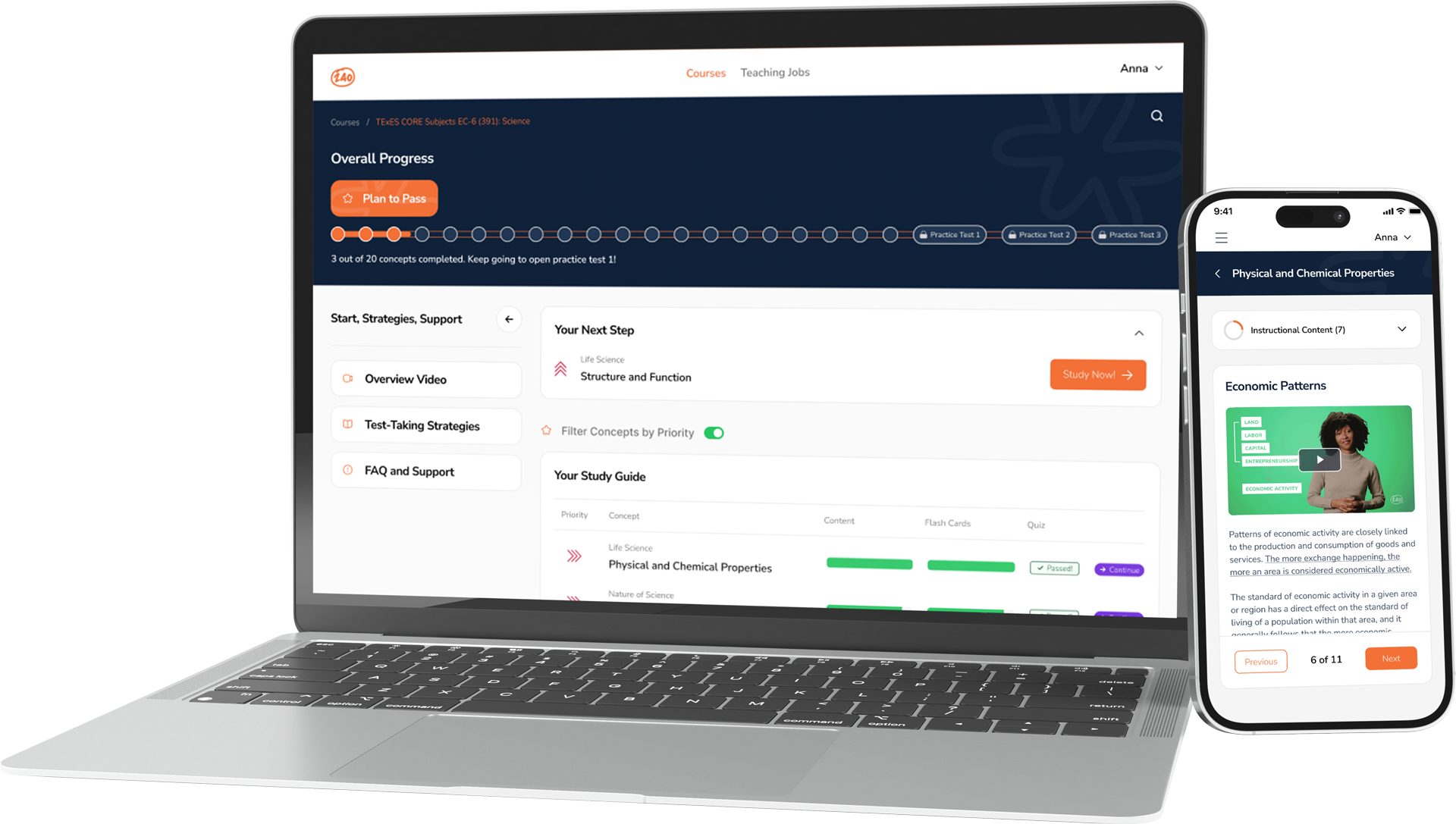Top Teacher Assistant Interview Questions (And How to Answer Them)


Application submitted. Resume sent. The phone rings, and you’ve got an interview scheduled to be a new teacher assistant. Congratulations!
But what now? How do you prepare to interview for this position? What types of questions will be asked?
If you’ve got butterflies in your stomach just thinking about the teacher assistant interview, don’t worry! At 240 Tutoring, we have over 60 years of collective experience in education, both as interviewers and interviewees. This article will prepare you for your teacher assistant (or paraprofessional) interview by reviewing common questions and giving you tips on how to answer them thoughtfully.
Teacher Assistant Interview Tips
Before the Interview
In addition to preparing for the types of questions you might be asked, you can prepare for your interview by refreshing your knowledge of the school and district. Most schools have a web page or active social media page that will celebrate the school’s unique identity and successes. Tucking a few points into your pocket to pull out during the interview shows your dedication and interest in the position and can set you apart from other candidates.
Practicing common teacher assistant interview questions will help you succeed. Mock interviews help develop your answers so you’re not caught off-guard during the real interview. Remember to draw upon your own experience in school as well as any formal education you’ve received to answer questions. Remember, it’s important to sound genuine during the actual interview. While practicing your answer will help you to appear confident on the day, it is just as important not to sound robotic.
The Day of the Interview
Dress for success and check your route to the school ahead of time so that you won’t arrive late. Try to enter the building roughly 10 minutes before your scheduled interview time. If you get to the school earlier, take a few moments to calm your mind and run through your mental preparations of questions and answers.
During the Interview
Take deep breaths, smile, and shine with confidence. You’ve prepared for this interview well and now it’s time to let your personality and knowledge shine. Be sure to use direct eye contact and speak clearly.
After the Interview
Be sure to use your firmest handshake and thank the interviewer for their time. Repeat your interest and excitement in the position and that you are looking forward to hearing from them.
Common Teacher Assistant Interview Questions (And Tips for Answering Them)
Planning for the types of questions you might encounter during a teacher assistant interview is one of the best ways to prepare for your interview. Researching and practicing common questions will ensure that you aren’t caught unawares by any questions. Knowing what you might be asked ahead of time will ensure that you sound confident and articulate during the actual interview. Following these paragraphs, you will find ten common teacher assistant interview questions. Each question includes sample answers or key points to consider while answering.
It is very likely that you will be asked questions you haven’t prepared for. In this case, take a few seconds to consider the question before giving your answer. Taking your time to answer thoughtfully is more important than responding quickly.
If this is your first position as a teacher assistant, some questions might not directly apply to your experience or history. Your interviewer may adjust the question to ask what you would do, but you could also begin with an introductory phrase such as, “While I haven’t experienced this yet, I would plan to ….”
- Tell us a little bit about yourself.
- Here the interviewer is looking to get a sense of who you are as a person. You might discuss unique hobbies or skills that set you apart. Include your educational background or any relevant childcare and education experiences.
- Why did you decide to become a teacher assistant?
- Before applying for this position, you’ve likely discussed your reasons with family or friends. Use those answers to guide your response. Include information about skills or traits you possess that make you the best choice for this position.
- Describe the roles and responsibilities of a teacher assistant.
- The goal of this question is to get an understanding of what you already know about good teacher assistants and what you expect to do during the day. Think about defining your role in the classroom and the steps you’ll take to ensure that you meet the goals of students, the teacher, and the school.
- What experience do you have working with children?
- For this answer, you can draw upon all levels of experience. Have you worked in schools before? Do you have your own children or family members who are students? Have you studied or are you currently studying to work in the education field? Have you volunteered at kids’ camps? Briefly list and describe each relevant experience that will help you stand out as a qualified teacher assistant.
- A student is disrupting the class by jumping up and down in her seating area. How do you handle this?
- Part of a teacher assistant’s job is to help maintain order in the classroom, whether you are working one-on-one with a student, in a small group, or helping with the entire class. This question wants to know what behavior management techniques you know and how you will weave your strategies and knowledge together with the classroom teacher’s established rules. For a question like this, consider what you know about child development (Does the student need an opportunity for physical movement before settling into work?), the classroom procedures already established, and techniques to redirect the student.
- How do you develop a strong working relationship with the teacher(s) you’ll be working with?
- To best serve the classroom, a teacher assistant should be on good terms with the cooperating teacher. This question seeks to discover your plans to create a strong working relationship. Will you make yourself available before or after hours to discuss what’s working? Or maybe you’ll exchange phone numbers in order to communicate outside of class time. Think about ways in which you’ve created strong bonds with prior coworkers and how those can be incorporated into your new job.
- What are the qualities of a successful teacher assistant from the perspective of a student?
- There is no right answer to this question, and it can be a bit tricky to put yourself in the mind of a student. While a student’s ideal assistant might do the work for him or allow her to play computer games instead of work, this won’t win you any points with your cooperating teacher. Consider the qualities you believe make a good teacher assistant and choose those that students will agree with. Someone who is kind, patient, knowledgeable, funny, etc.
- You observe your teacher interacting with a student in a way you don’t believe is beneficial for that student’s learning. What steps do you take to remedy the situation?
- It’s inevitable that disagreements will come up, but how you deal with that unpleasantness is important. The interviewer wants to know how you will communicate with your cooperating teacher effectively and what steps you might take if the situation does not improve. Think about the best time to address the situation (after class or during the teacher’s prep), how to use direct language to describe the interaction as you saw it, and whether or not you have a solution.
- Here’s a more concrete example. You’ve been working closely with one student, Jimmy, for a few weeks. During class, the teacher sees he is off task and loudly calls out, “Jimmy, sit back down please and get to work! We only have 15 more minutes.” In response, Jimmy verbally vents his anger and is sent to the office to cool down. When you work individually with Jimmy, you hold up two fingers to your cheek anytime he needs redirection. Jimmy sees your sign and quietly focuses again. The teacher could benefit from using your technique, and bringing it up respectfully is one way to improve everyone’s learning and working environment.
- What is an IEP, and how do you use one to ensure student success?
- Depending on the students in your assigned class, you may or may not need to work with students who have an IEP or 504 plan. An IEP, or Individual Education Plan, and 504 are plans established by the school to assist students. The IEP will outline specific goals, needs, strategies, and challenges for the student. An IEP or 504 may specify that a student should be read aloud to or receive an extended amount of time on assignments, for example. By following the plan and providing the appropriate accommodations, the teacher assistant assures that the student is able to thrive.
- Where do you see yourself in five years?
- Creating a strong, stable community of teachers and assistants is key to running a good school. The interviewer wants to know that whoever they hire plans to stick around. Think about your personal and professional goals and how they may impact your future in this position. Be thoughtful in your response and explain how this teacher assistant role will help you achieve your dreams.
After reviewing this article and practicing your answers, you are ready to succeed in your interview. Teacher assistants provide a vital service to both the school and the students they interact with. Once you interview, you’ll be even closer to making a difference for your community and the students your school serves. To prepare for your job, check out our tips for how to succeed as a parapro!


